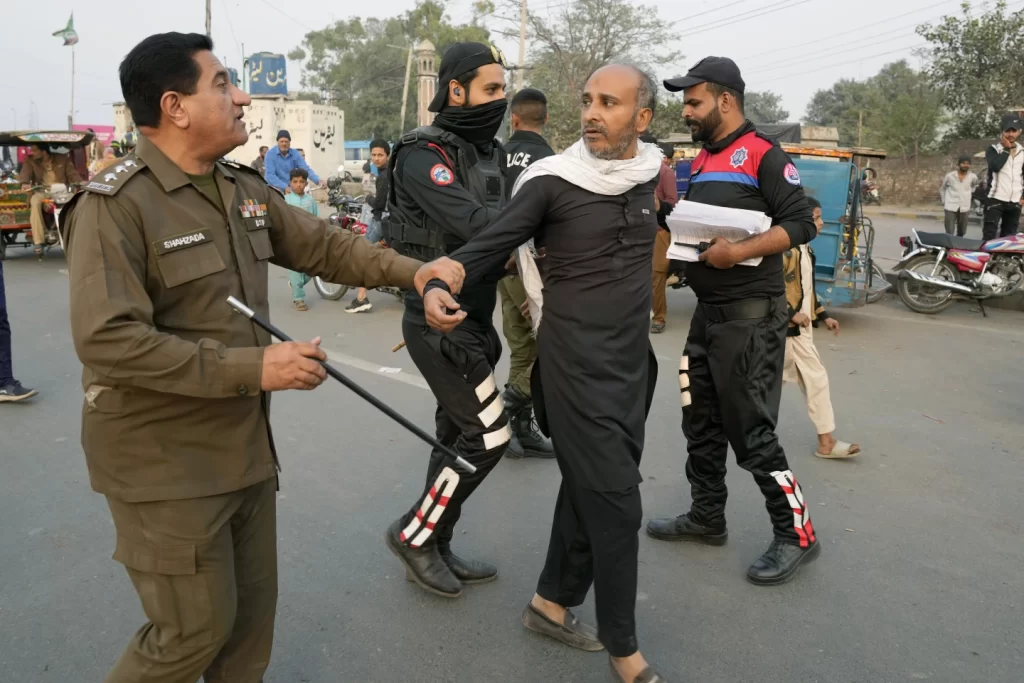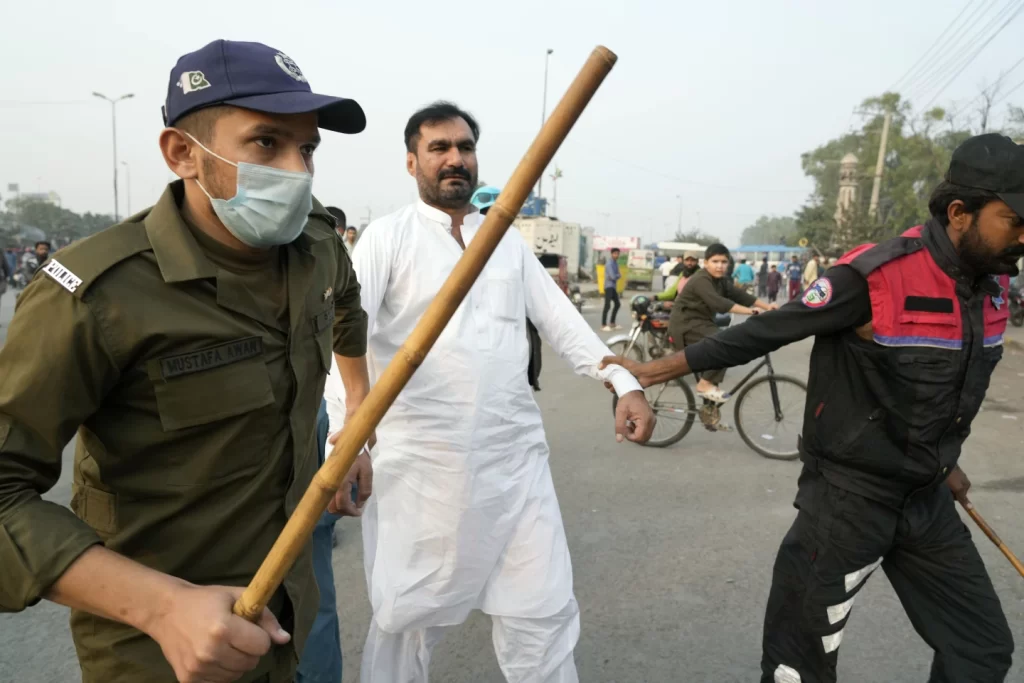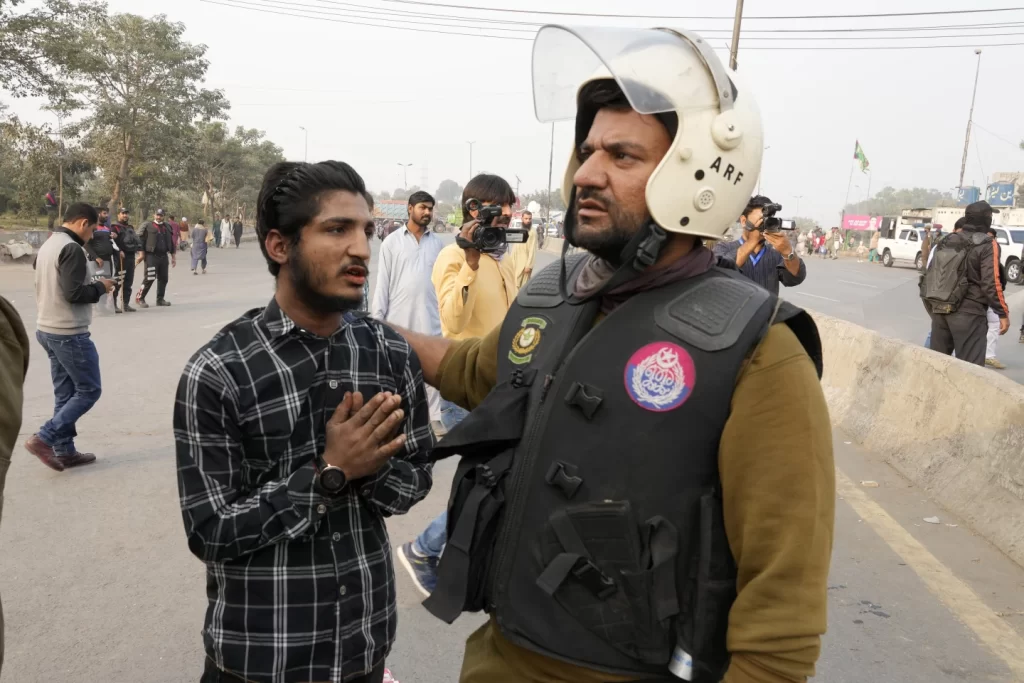Pakistani authorities suspended mobile and internet services Sunday in unspecified “areas with security concerns” as supporters of imprisoned former Prime Minister Imran Khan prepared to march on the capital, while simultaneously preparing for a visit from Belarus President Alexander Lukashenko.

The government announced the restrictions on X (formerly Twitter), a platform already banned in Pakistan, without detailing affected areas or the duration of the shutdown. The move prompted telecom provider Nayatel to offer customers alternative landline services, highlighting growing concerns about communication disruptions.
Interior Minister Mohsin Naqvi confirmed authorities had sealed off Islamabad’s Red Zone, which houses key government buildings, warning that “anyone reaching it will be arrested.” While denying a complete cellular blackout, Naqvi acknowledged mobile data restrictions, framing the measures as necessary protection for residents and property.
“The security measures were implemented to protect residents and property,” Naqvi said at a press conference, blaming Khan’s Pakistan Tehreek-e-Insaf (PTI) party for disrupting daily life. He noted protesters had planned to use the same route as the incoming Belarusian delegation.

Despite the crackdown, PTI supporters showed varying levels of resistance across the country. In Peshawar, party members celebrated with dancing and drumming while displaying Khan’s photos as vehicles departed for Islamabad. Meanwhile, police in Lahore arrested PTI members as civilians navigated through street blockades.
Internet advocacy group Netblocks reported restrictions on WhatsApp’s backend services, affecting media sharing capabilities. The U.S. Embassy issued a security alert warning Americans to avoid gatherings, noting that “peaceful gatherings can turn violent.”
Khan’s wife, Bushra Bibi, joined a convoy led by Khyber Pakhtunkhwa Chief Minister Ali Amin Gandapur heading to Islamabad. “She cannot leave the party workers on their own,” PTI spokesperson Sheikh Waqas Akram said.

The former prime minister remains in prison facing over 150 criminal cases, which his party dismisses as politically motivated. Despite his year-long imprisonment, Khan maintains significant popular support, with his followers heavily dependent on social media and messaging platforms to organize protests and share information.
Last month’s similar communications shutdown in Islamabad and Rawalpindi disrupted essential services including banking, ride-hailing, and food delivery. The government has escalated its technological restrictions, reportedly targeting VPN services that could circumvent the blockade.



